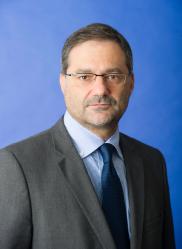

2:30 pm EST - 4:00 pm EST
Past Event
2:30 pm - 4:00 pm EST
1775 Massachusetts Avenue NW
Washington, DC
20036
Ten months after the terrorist attacks against Charlie Hebdo and a Kosher supermarket, Paris has been hit savagely again, with 130 people dead and hundreds more injured. This time, the terrorists did not take aim at a satirical newspaper, but rather targeted France’s youth as they were unwinding at a concert, soccer match, restaurants, and bars. It has been decades since France encountered such devastating violence. Why is the country now a prime target of terrorism? How does the attack relate to French foreign policy in the Middle East? What are the consequences for politics and society on both sides of the Atlantic? How should the international community respond?
To discuss France, Europe, and the aftershocks of terrorism, the Center on the United States and Europe (CUSE) at Brookings convened a panel of experts on the eve of French President Hollande’s visit to Washington. Speakers were Philippe Le Corre and Kemal Kirişci of CUSE, Joseph Bahout of the Carnegie Endowment, and Laure Mandeville of Le Figaro. Brookings Fellow Jeremy Shapiro provided introductory remarks and moderated the discussion.






Vanda Felbab-Brown
March 28, 2024

Suzanne Maloney
March 1, 2024

Ranj Alaaldin
February 2, 2024